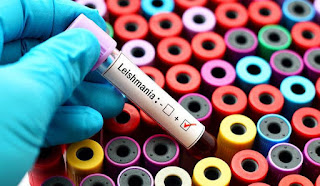Leishmaniasis is a parasitic disease caused by protozoan parasites, which are transmitted by the bite of infected female phlebotomine sandflies. The disease is found in parts of the tropics, subtropics, and southern Europe. It occurs in several temperate and tropical countries of Central and South America (New World), the Middle East, East Africa, and East Asia (Old World). In other regions, such as the United States and Europe, travelers from affected areas may have leishmaniasis. There are 3 main forms of leishmaniases – visceral (also known as kala-azar, which is and the most serious form of the disease), cutaneous (the most common), and mucocutaneous.
The effectiveness of leishmaniasis treatment depends on several factors, such as drug choice, host immune response, parasite strain, treatment regimen, as well as patient compliance. Many drugs are used in its treatment, but the only effective treatment is achieved with current pentavalent antimonials. Antimonial therapy is the standard treatment used for patients with leishmaniasis who are in poor health. Antimonials are oral drugs taken in order to boost the immune system so that the microbes cannot survive. The medications used for this purpose vary widely in amount and concentration. It is important to follow your doctor's prescription in order to treat this condition properly.
Antiparasitic are commonly prescribed in leishmaniasis treatment and other parasitic infections. They work by inhibiting the movement of microbe's into the blood stream and thus cut off their food supply. They come in two different forms i.e. single dose and group treatment. This parasitic disease is often difficult to diagnose due to its diffuse nature. Parasites may be residing in the body at levels beyond the detectable organ such as the skin, intestine, or blood. This condition is more common in persons who have a suppressed immune system, compromised circulation, or compromised liver function. Parasites may also be circulating in the blood through ingestion, blood transfusion, or blood obtained from a recently affected person. Incubation period is prolonged for this parasitic disease and may result in serious complications.
Visceral leishmaniasis is one of the main causes of death among young adults in developed countries. The infection is characterized by severe inflammation of the lymph nodes and tissues surrounding the lymph nodes. Antiparasitic are the first line of leishmaniasis treatment. Individuals may develop kidney disease if they do not stop drinking water contaminated with the parasite. In such cases, they may need dialysis or transplantation.
Use of lipid nanoparticles as ursolic acid carriers can be an interesting strategy for leishmaniasis treatment. Ursolic acid loaded into nanostructured lipid carriers can significantly reduce splenic and hepatic parasitism. NLC can improve the efficacy of Ursolic acid when compared to Ursolic acid administered freely. Ursolic acid-loaded nanostructured lipid carriers coated with chitosan oligosaccharides have high anti-leishmania activity. The almiramide N-methylated lipopeptides exhibit promising activity against trypanoso-matid parasites. Unsaturated lipid tail and the C-terminal acid and carboxamide functions of almiramide peptides have demonstrated efficacy in leishmaniasis treatment.




No comments:
Post a Comment